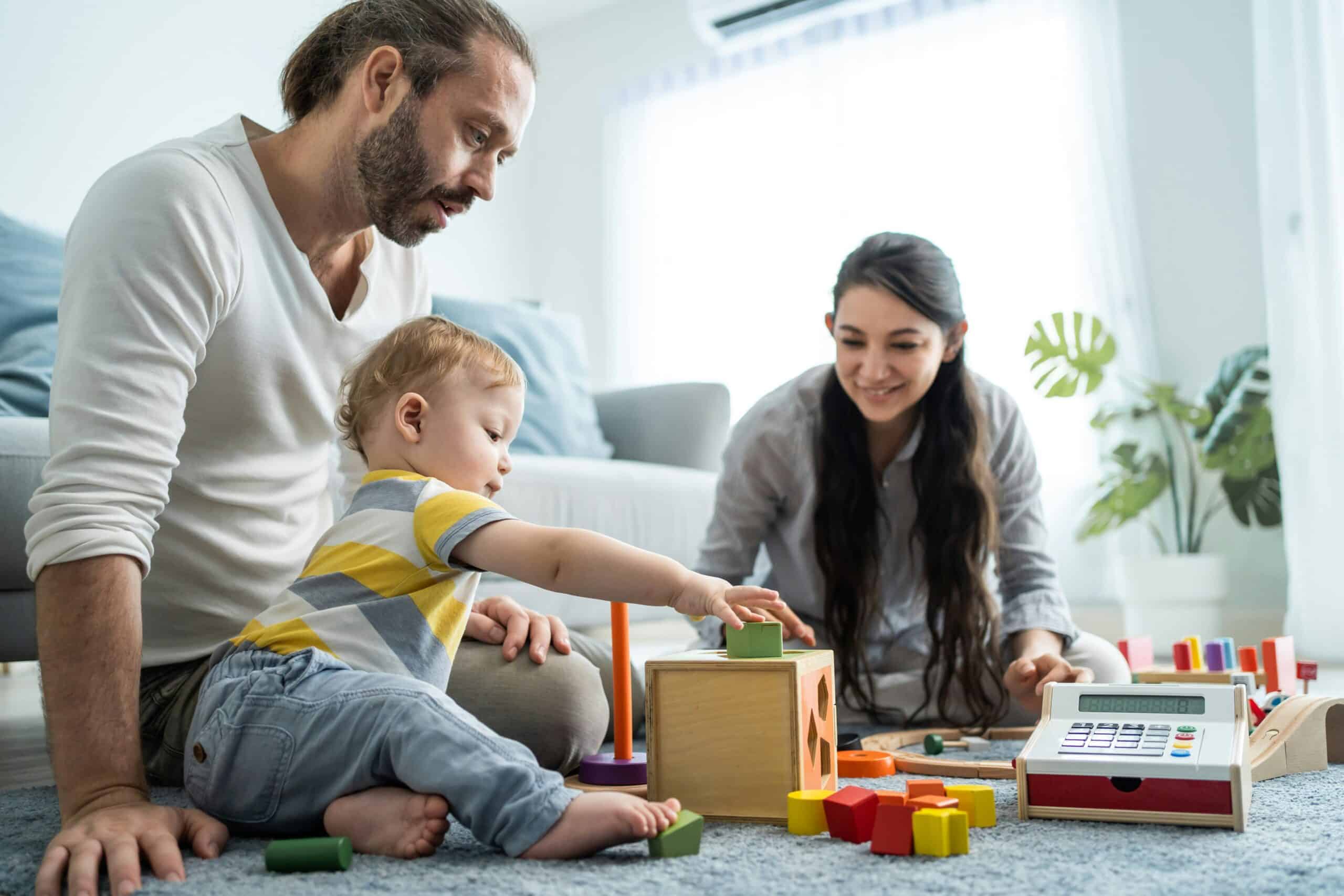
The Role of Play in a Child’s Cognitive Development
When we consider childhood, play is usually the easiest and most universal thing to think of. It’s not merely fun and games—it’s children’s work, defining who they are and how they think. For parents, teachers, and child care workers, grasping the important role of play in developing thinking is key to developing a child’s full potential.
This blog explores play and cognition, the various forms of play that contribute to learning, and how you can support playful activity in a way that maximizes development in your children.
Why Play Is the Foundation of Learning
Play is a child’s natural way of discovering the world around them, being creative, and making sense of reality. Research continually confirms that open-ended, creative play builds essential thinking skills such as problem-solving, memory, and self-regulation.
Think of a child building a tower out of wood blocks. What may look easy is a testing process for physics laws, learning fine motor skills, and practicing trial-and-error experimentation. To young children, this is the foundation for abstract thinking as well as the planning skills to apply as they advance intellectually and socially through the years.
Most Significant Cognitive Gains From Play
- Problem-Solving and Critical Thinking: Puzzles, blocks, and role-playing all take effort to figure out. These encourage logical thinking as well as perseverance.
- Language and Communication Skills: Cooperative games or pretend play encourage children to use ideas to express them, negotiate roles, and build vocabulary.
- Focus and Memory Development: Games like memory card games or stories require attention and reinforce the ability to remember.
By allowing children to take charge and discover for themselves, play becomes a powerful tool for cognitive development.
Types of Play That Foster Cognitive Development
Not all play is equal. Structured or unstructured, there are several types of play that hone certain skills that lead to a child’s total mental development. Here’s the list of most effective types of play.
Imaginative Play
Play isn’t just cute—it helps children learn problem-solving techniques they will be able to apply in real life. If children play house with a make-believe bakery, they sort through complex social and logistical conundrums, such as learning to divide or coping with a line of imaginary customers.
Try This at Home or School:
- Create a dress-up nook with a selection of costume clothing and paraphernalia.
- Encourage group narration in which kids build on each other’s ideas.
Physical Play
Running, jumping, and climbing are not just for burning energy. Physical play develops brain-body coordination, sense of space, and even emotional regulation. Studies show that children who engage in outdoor play have better concentration and higher academic performance.
Encourage Outdoor Fun:
- Set up an obstacle course in the backyard.
- Plan outings to the park where kids can climb and discover without limits.
Constructive Play
Allow imagination to flow freely when kids work with materials like LEGO blocks, playdough, or cardboard boxes to invent something new. Constructive play develops problem-solving, planning, and space abilities. And? It makes them more persistent and patient if it doesn’t go as planned at first.
Games With Rules
While young children subsist on free play, older preschoolers and school-age children can benefit from structured games with rules. Think board games, Simon Says, or team challenges. These games build critical thinking, strategy, and a sense of obedience—life skills beneficial for teamwork and collaboration.
The Science Behind Play and Brain Development
Play impacts a number of areas of the brain, and therefore it is a turbo-charged mental device for equilibrated brain development. Play fortifies the pathways of the neurons, especially within the prefrontal cortex—the area of the brain involved with higher-order thinking like attention, organization, and emotion management, as found through neuroscientific investigation.
For example, when kids participate in block building in groups, their brains light up regions that deal with reasoning and decision-making. The retention memory is accomplished by accessing processes that rote learning can never accomplish.
A Study to Note
In a 2014 Pediatrics study, scientists pointed to the long-term cognitive benefit of play. Kids with full access to play spaces during learning were later in life found to have robust executive functioning and flexibility, according to the scientists.
This is a reminder that all academic structure must be balanced against some open-ended exploration and play time.
How Parents, Teachers, and Caregivers Can Foster Play
Fostering play doesn’t have to include complicated toys or expensive programs. At times, the most straightforward arrangements prove best at fostering imagination and cognitive growth.
Suggestions for Parents
- Establish a Play Space: Designate a clean, safe space where your child can explore toys, crafts, and open-ended play.
- Limit Screen Time: Encourage hands-on play by setting limits on digital screens.
- Be a Play Partner: Join in on your child’s games occasionally to enable cooperative play or role-playing scenarios.
Tips for Educators and Childcare Providers
- Integrate Play Into Lesson Plans: Use play-based learning models that combine fun with skill acquisition.
- Provide Variety: Provide a range of activities that appeal to various interests—arts and crafts, interactive storytelling, group puzzles, etc.
- Observe and Adapt: Watch each child’s unique interests during play and modify activities to meet their strengths while challenging them.
Balancing Play and Academics
The greater emphasis placed on academic readiness in early childhood education will more often than not dismiss play. The truth is, the two are not mutually exclusive—play is one of the best maps to academic success.
Countries like Finland, which prioritize play over formal schooling during early childhood, consistently bring about some of the world’s best academic results. This is a powerful reminder that play is not a recess from learning—it’s an invaluable supplement to it.
Build a Brighter Future Through Play
The beauty of children is that they learn so much naturally through playing, discovering, and wondering. By providing opportunities for children to try a huge variety of fun activities, you are enabling them to build their thinking skills upon which they can base a lifetime of learning and success.
Whether you’re a parent building creativity in your child, a teacher designing an engaging classroom, or a child-care professional developing minds through interaction, you play an important role.


